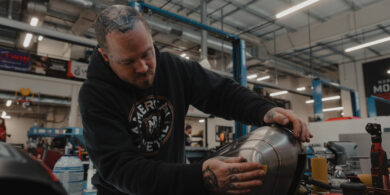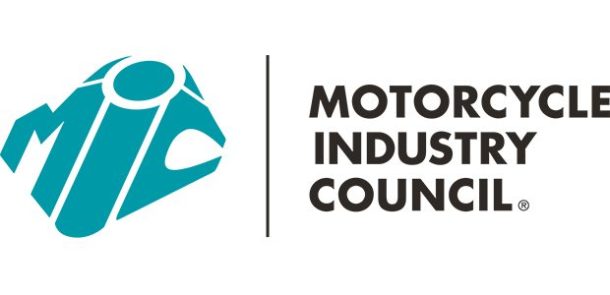Why do we have poor dealership managers?
I just finished reading a very interesting article in the Gallup Business Journal. The article discussed the findings of Gallup studies and research on managers in today’s business operations. Their overall findings were shocking — companies fail to choose the person with the proper skills for a manager position a staggering 82 percent of the time.
One problem is that it is hard to find good quality managers. According to the study, about 3 people out of 10 have the aptitude and attitude to be a great manager. Of those 3, two will require an investment in training and coaching to do the job well.
What makes it worse is that poor managers account for a huge lack of employee performance (“engagement” as they call it) and can actually cause business failures. That last remark is no surprise to me. In my more than 30 years of working with dealers, I’ve seen a number of dealership failures that resulted from inept management.
Unless the dealership has an absentee owner, the dealer principal (DP) has to share the blame when his or her managers can’t do their jobs. The DP should be inspecting what they expect. Symptoms like high turnover of personnel, substandard employee productivity, high shrinkage rates and/or upside down income-to-expense ratios should be clues that changes might need to be made.
So what are some of the reasons why we don’t have good managers?
One of the main reasons is because we seldom seriously consider leadership skills or management background in our hiring process. In many cases, we don’t even know what to look for.
We often use the “last man standing” methodology for selecting managers. This is how that goes: Our sales manager has left us — perhaps with little or no warning. Or perhaps we have had to fire them for some major policy offense. In any case, we have to take action quickly to get a manager on the floor. We appoint the lead salesperson (often the one that has been with us the longest — the “last man standing”) as the new sales manager. After all, they know the processes, right? Besides, they expect to be promoted into the position.
In most cases we have just lost a good sales producer and put them in a position that doesn’t match their skill set. A sales manager has to be a good leader, team-builder, coach and have great organizational skills. How many salespeople have you seen with these characteristics?
Another common example happens in service. We replace the outgoing service manager with one of our lead technicians. As above, this job requires the same leadership characteristics. It also requires a person that is customer-friendly, outgoing and able to deal with upset customers without taking it personally. Speaking from experience, many techs are not the best people to have dealing with customers. In this case, you will likely lose an “A” tech (that will be very hard to replace), and you may set them up to fail in a manager slot.
Before you get all fired up and go out to hunt me down, let me say that there are certainly exceptions to these rules. I see them in our management classes. However, these are exceptions, rather than the norm.
So what makes a good manager?
Managers are people who have the ability and training to adapt their basic management styles to the behavioral characteristics of the individuals under them. This enables them to manage their people the way they want to be managed. Assuming they hire the right workers, this generally results in the development of high-performing teams. According to the Gallup study, good managers:
• Can motivate every single employee to take action
• Have the assertiveness to drive outcomes and the ability to overcome adversity and resistance
• Create a culture of clear accountability
• Build relationships that create trust
• Make decisions based on productivity, not politics
The next time you look for a manager, focus on their leadership and management capabilities rather than promoting people into positions because you (or they) feel they have earned it. Aptitude — the ability to be an effective manager — is far more important. Aptitude is innate. No amount of training will create a talent that does not exist.
Take the time to find and hire the right people for your management positions and your business will become far more successful than you might have imagined.
Steve Jones is senior projects manager at Gart Sutton & Associates. He has worked in the powersports industry for more than 30 years, for dealerships and manufacturers, and as a consultant and trainer. Contact him at steve@gartsutton.com.









One thing that has really struck me about the motorcycle business is the number of people in the industry who are mixing their passion with their job.
In a lot of respects this is good, but in many others, it’s a death knell.
Motorcycling is very much a fringe pursuit, and focusing on candidates who are ‘into’ bikes or ‘know the industry’ drastically reduces the talent pool.
In some industries that also attract ‘passionate’ employees, there’s a strong argument in favor of that approach.
But in the case of motorcycling, being able to pull a wheelie or having a 20-year-old race trophy on your office shelf doesn’t have any bearing on being able to do a managerial job well.
Good point, Chris. Having a passion for excellence as a manager is certainly more critical to being a successful manager than being an enthusiast. However, not having a love of powersports makes it difficult to accept the work-load and proportionately low wages that go along with our business. The same situation often holds true for dealership owners. We have a high percentage of very passionate owners with limited business skills and knowledge. This leads to an understandably poor survival rate for many of them. However, non-powersports folks who invest in dealerships often become disillusioned with the complexity of the business and the low return on investment relative to other business ventures.